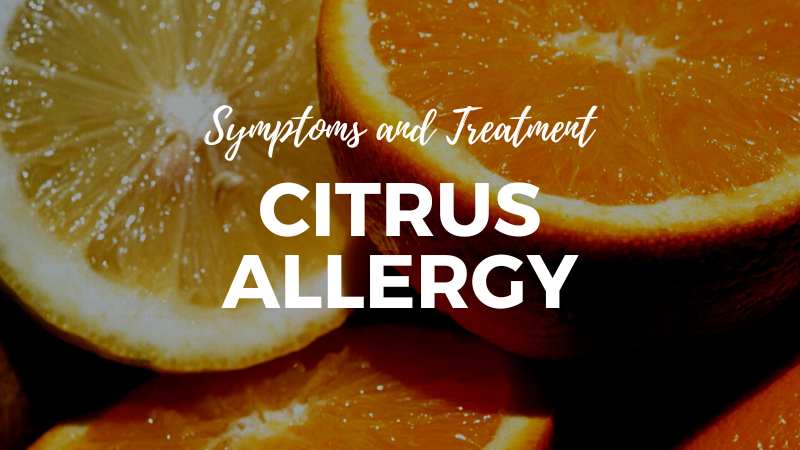Fruits are some of the most nutritious food groups. They are rich in sugars, carbohydrates, vitamins, and minerals. This is especially true for citrus fruits, which are rich in vitamin C and are recommended as an essential inclusion to the diet by most doctors. Many studies have highlighted the health benefits of citrus fruits, from boosting the immune system to reducing the risk of certain chronic diseases.

Fruits are, in fact, essential for healthy living. It is, therefore, regrettable that some people develop citrus fruit allergy. This allergy is quite rare and, thankfully, very mild. The prevalence of citrus allergies is low. However, it’s essential for those affected to be aware and cautious. People who suffer from citrus fruit allergy are advised to stay away from fruits and derive their vital nutrients through alternative foods and supplements. It’s always best to consult an allergist to ensure you get the proper nutrients in the right amounts.
Fruit allergies are primarily type 1 contact allergies in which the oral area is most affected. There may be the formation of ulcers in the mouth or the appearance of rashes, depending on the fruit and the quantity of it consumed. Please note that the severity of reactions might vary from person to person. Usually, people who suffer from citrus fruit allergy are recommended to avoid pineapples, oranges, plums, musk melons, lime, and lemon. Fruit and other beverages containing citrus fruit pulp or juices should also be avoided. Reading product labels and being aware of potential restaurant cross-contaminations can be crucial.
Citrus Allergies: Science Behind the Reaction
Citrus allergies occur due to the immune system’s hypersensitive reaction to specific proteins found in citrus fruits. The immune system mistakes these proteins as harmful invaders, like pathogens. It releases immunoglobulin E (IgE) antibodies. The interaction between these antibodies and the proteins triggers histamines responsible for the allergic symptoms.
Specific proteins causing these reactions in citrus fruits are Limonene and Geraniol. Both are commonly found in the skin and juice of the fruits. Cross-reactivity can also occur with other allergens. People allergic to certain pollens might also react to citrus due to the presence of similar proteins. This is also known as Oral Allergy Syndrome (OAS).
Citrus Fruit Allergy Symptoms
The common citrus fruit allergy symptoms are:
- Oral Reactions:
- Ulcers inside the mouth, on the tongue, and lips
- Tingling sensation in the inner cheeks and lips
- Throat and Respiratory Issues:
- Constriction of the throat due to swelling, followed by itching and irritation
- Respiratory complications like asthma attacks and difficulty in breathing
- Cold and flu-like symptoms like sneezing, coughing, and wheezing
- Skin Reactions:
- Rashes on various parts of the body and hives
- Eye Irritations:
- Watery, itching eyes
- Gastrointestinal Disturbances:
- Vomiting
- Diarrhea
- Abdominal cramps
Citrus Fruit Allergy Treatment
If you experience an allergic reaction to citrus fruits, you should immediately see a doctor about it. Though the symptoms are usually mild, anaphylactic symptoms may be experienced by some. In such a case, treatment should be made available immediately.
For the milder symptoms, antihistamines are administered. Topical lotions and creams containing corticosteroids may be recommended if there are skin rashes and hives. Bronchodilators are used if there has been an asthma attack or respiratory problems. Regular follow-ups with your healthcare provider help to monitor and manage any complications.
It is best to avoid eating citrus fruits. In unavoidable circumstances, peeling off the fruit’s skin may help decrease the chances of developing citrus fruit allergies. Washing fruits thoroughly and being cautious about cross-contamination can further reduce risks. Freshly picked citrus fruits are better than those that are very ripe. Awareness and precaution are vital to managing any allergy effectively.

1 Comment
i have a citrus allergy, started off 2 months ago, afew itches, now, hives, swelling, fat lips, extreme itchiness, headaches, diarrhoeah, anger amd probanly more to come!!!!! It’s so annoying since citric acid is in everything not to ,ention limonene, citrol, citronellol and citronel!!!!!